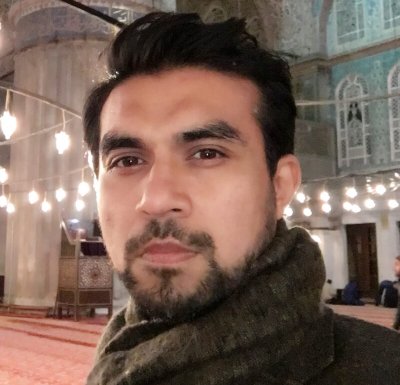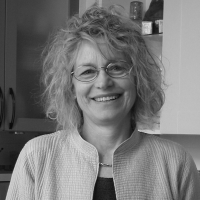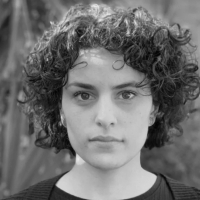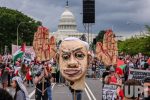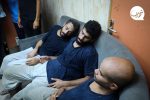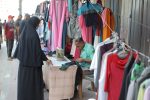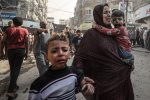In her latest report, “Anatomy of a Genocide,” the UN Special Rapporteur on the situation of human rights in the Palestinian Territories, Francesca Albanese, concluded that the threshold for genocide has been met in Israel’s military assault on Gaza.
Albanese cites several reasons for reaching that conclusion. First, the Special Rapporteur argues that Israel committed several acts prohibited under the Genocide Convention, including killing members of the protected Palestinian group, causing serious bodily or mental harm to group members and deliberately inflicting conditions of life calculated to bring about the group’s physical destruction, in whole or in part.
The report cites the widespread destruction and killing of over 30,000 Palestinians, including 13,000 children—the death toll has since increased to 33,000—the displacement of 80 per cent of Gaza’s population and the devastating impact on critical civilian infrastructure and health care as evidence of these genocidal acts.
Second, the report contends there is direct evidence of genocidal intent by Israeli leaders, including public statements referring to Palestinians in dehumanizing terms and calling for the destruction of the group. It argues this genocidal language has been internalized by Israeli forces carrying out attacks, citing soldiers’ social media posts boasting about killing Palestinian families. The Special Rapporteur asserts the systematic and indiscriminate nature of the attacks, in combination with official genocidal rhetoric, can only lead to an inference of genocidal intent as required under international law.
Finally, Albanese accuses Israel of systematically distorting legal concepts in international humanitarian law (IHL), including proportionality, distinction and precaution, in order to provide a cover of legality for its genocidal campaign. The report argues Israel has subverted rules around human shields, military objectives, collateral damage, safe zones and medical facilities to effectively treat all of Gaza and its civilian population as legitimate military targets, revealing the underlying genocidal logic.
Based on this genocidal logic, when Israel claims it has killed “terrorists”, in its own twisted way, it is telling the truth because all Palestinians under the eyes of the Occupation state are “terrorists”. Such a view is not only deeply at odds with basic universal norms, it is also in contravention of international law.
Palestinians, as the International Court of Justice (ICJ) unequivocally stated, constitute a “protected group” under the Genocide Convention. As such, Israel not only displays genocidal intent by subverting the rules of war, as Albanese has suggested, anyone who questions the existence of Palestinians as a people, is also displaying genocidal logic.
Israel’s sweeping application of these distorted interpretations of IHL to justify indiscriminate attacks and mass civilian casualties is cited as further evidence that genocidal intent is the only reasonable inference that can be drawn from its conduct.
In the recommendations section of the report, Albanese calls on UN member states to reconstitute the UN Special Committee against Apartheid to comprehensively address the situation in Palestine. Unlike the many other recommendations in the report, such as calling for the implementation of an arms embargo on Israel, sanctions to ensure a ceasefire, supporting an ICJ investigation into legal violations by all parties, pursuing prosecutions under universal jurisdiction and increasing funding to the UN Palestinian refugee agency (UNRWA), which are all important in their own way in alleviating the current suffering and bringing war criminals to justice, the call to reconstitute the UN Special Committee against Apartheid, is designed to end the ongoing Nakba once and for all.
With the international human rights community almost unanimous in their conclusion that Israel is committing the crime of apartheid, there has been growing discussion about what the next step is in dismantling the system of racial domination in historic Palestine, and what tools are required to achieve this aim. South Africa provides a blueprint and, more specifically, the vital role that was played by the UN Special Committee against Apartheid and the UN Center against Apartheid. Both were essential in cultivating the grounds for what was one of the greatest achievements of the 20th century.
Calls for reviving the Special Committee and Center have been coming from many corners. Victor Kattan, Assistant Professor of Public International Law at the University of Nottingham, argued for its revival in an article last month. International law expert and activist, Dr John Reynolds, also stressed the need to reactivate the special committee against Apartheid, stating that “a consensus has developed across global civil society that ‘the apartheid crime’ continues to occur in Palestine”. These calls have followed Palestinian rights groups who see the reconstitution of the committee as a vital tool in dismantling Israeli apartheid.
The revival of two key UN mechanisms that played a crucial role in the struggle against apartheid in South Africa will represent an expression of serious intent to address the source of the decades-long illegal occupation, ethnic cleansing and genocide. A glimpse into the work of the two UN institutions is sufficient to know just how vital they were in bringing down the apartheid regime of South Africa.
The UN Special Committee against Apartheid, established in 1962 by UN General Assembly resolution 1761, was mandated to review and report on the racial policies of the South African government to the UN General Assembly and the Security Council. The Committee promoted the international campaign against apartheid, pressed for effective sanctions, arranged assistance for victims and liberation movements and brought publicity to the crime of apartheid and the resistance of the South African people. It organized conferences, seminars and events to promote coordinated action and shaped public opinion through media presentations, legitimizing calls for boycotts, divestment and sanctions.
The UN Center against Apartheid, established in 1976 under the auspices of the Special Committee, helped develop the international campaign, produce reports and studies on apartheid, lead public awareness campaigns and provide humanitarian and educational assistance to victims. The Center also reviewed and reported on third states’ fulfilment of their obligations to implement UN counter-measures against South Africa’s apartheid regime.
These mechanisms must be revived to dismantle Israel’s apartheid regime over the Palestinian people. While human rights groups have determined that Israel has established a system of racial domination in Palestine, the international community has not only failed to hold Israel to account, it has unwittingly collaborated with this regime by aiding Israel’s attempt to fragment the Palestinian people into distinct legal, geographical and political domains.
Despite numerous UN commissions of inquiry and fact-finding missions investigating human rights violations in the Occupied Palestinian Territory, no recommendations have been implemented, resulting in impunity and the continuation of serious abuses. The reconstitution of the Special Committee and Center to report authoritatively on Israel’s apartheid regime, organize and advocate for coordinated international action and contribute to the formation of a transnational movement against Israeli apartheid, as they did in the South African context, would go a long way to bringing peace and stability to the region.
-Nasim Ahmed is a political analyst. He publishes articles on a daily basis with the London-based Middle East Monitor (MEMO) focusing in particular on Israel and Palestine and the Gulf region.

